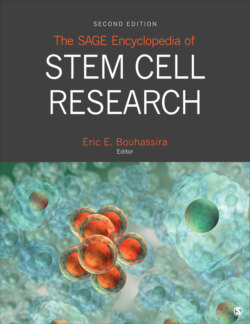Читать книгу The SAGE Encyclopedia of Stem Cell Research - Группа авторов - Страница 347
На сайте Литреса книга снята с продажи.
The Debate
ОглавлениеAt the center of the debate over stem cells is the issue of the value of human life at its beginning. Stem cells are blank cells with the capability of becoming any of 210 different types of human tissue, and researchers are seeking to use these cells to create cures for serious disease and to repair vital organs. Stem cells are common throughout the human body but most abundant in embryos. Unfortunately, it is necessary to kill the embryo to get the cells, and the national political debate is over whether tax money should support that killing.
Not only religious leaders but lay Christians are involved in the debate. In an instance of moral politics, Congress banned the use of tax dollars in research involving the killing or harming of embryos. Former President George W. Bush is more centrist; he agrees that experiments that require the killing of humans are wrong but accepts that those already destined to die are acceptable for use in research, including the aborted and the frozen embryos in fertility clinics. The Christian Right rebuts that two wrongs do not make a right, and benefiting from an immoral action is itself immoral. There is no room for compromise.
In the U.S. Senate, Sam Brownback (R-KS) contended that this is the first time in American history that medical researchers find it acceptable to kill one human to help another. The issue is the nature of the unborn being—whether an embryo is a human or a piece of property. Living beings have worth and dignity and a right to protection, under the law, from destruction or harm. If property, the embryo can be disposed of as its owner chooses, even destroyed.
When the National Institutes of Health (NIH), using a Bill Clinton administration legal opinion, proposed to use “spare” embryos from fertility clinics as a source of stem cells, the National Right to Life Committee responded, “If a law said no taxes may fund research in which porpoises are destroyed, and a federal agency then told its grantees to arrange for porpoises to be caught and killed for use in federally approved experiments, everyone would recognize this as illegal.” And Cardinal Adam Maida of Detroit contended that the use of taxpayer money for such human experiments made all taxpayers culpable.
Not all Christians are that extreme. Sondra Wheeler of Wesley Theological Seminary notes that some would even have problems with fertilization outside the human body because it is removed from the marital relationship. This is close to the Catholic position. Others say it is okay to create and fertilize but not to use the unneeded embryos; for them, store or share is the solution. And still others see a 15-day window for harvesting cells as long as the embryos are going to be destroyed anyway.
Lisa Sowle Cahill, Boston College theology professor, notes that the broad doctrines such as sin and creation and the fall should make humans more cautious about their own small activity. For her, the issue of whether an embryo is a person is a matter of philosophy rather than one of religion. She reads the Catholic Church as taking the position that philosophically there is no knowing when a life becomes a person but the embryo deserves the benefit of the doubt and extra protection just in case. She notes that for the affected woman, Christian or not, there is a difference between the embryo in the womb and the one in the lab, but for the church there is no difference.
The conservative Christian view allows no exception for laboratory-generated life, regarding the Petri dish and the fallopian tubes as the same. No embryo is surplus and, thus, none is available for research. Pro-life couples have the right to specify that no spares be conceived in in vitro fertilization. Orthodox couples routinely make this demand. With no surplus, there is nothing to destroy. And if by chance there are extras, then the right thing to do is store them for the future or donate them to other couples.
Pro-life groups oppose use of embryonic stem cells, as does the Vatican, which labels the practice “gravely immoral.” The Catholic Church adamantly opposes stem cell research regardless of the potential benefits because there is no known method of harvesting the cells without taking human life. According to Fr. Frank Pavone, president of Priests for Life, the church does not oppose research, and there is no debate about the worth of the fight against disease, but there are moral limits to what is researchable, what is manipulable, what is permissible. And the Christian Medical Association, 14,000 members strong, is adamant that defining life’s worth by how we use it is “the grossest violation” of humanity: embryonic stem cell harvesting is murder of pre-born children. It also violates the first imperative of the physician—first do no harm.
